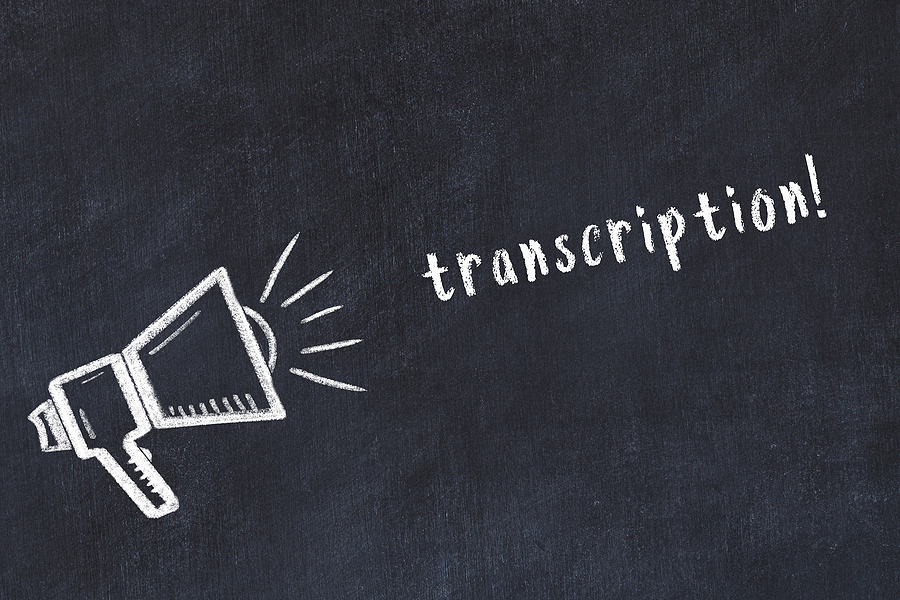The Benefits of Using Legal Transcription Services
What is legal transcription?
Transcription is the process in which a written recording is made of speech. Most transcriptions are typed out but there may still be occasions when the transcriber actually writes down what is heard on paper. The person who does the transcription must listen carefully to what is being said and transcribes it, i.e. writes down in words as accurately as possible what was heard. These transcribers may carry out the transcription of an audio or video recording or while the person is actually talking. The most challenging transcription is the latter as there is often no possibility of hearing the words a second time. On the other hand, the transcription of audio or video recordings is likely to be more accurate as the transcriber can start and stop the recording or go back over it whenever they need to.
Legal transcription is the transcription of legal commentary, instructions, court proceedings, and any other speech of a legal nature. Lawyers and solicitors may use legal transcription services while in their office for all sorts of reasons or record an interview with a client. Again, they may use a voice recorder or record a video session, then ask a transcriber to transcribe it into text. Interviews that take place in a police station are typically recorded by a voice recorder and transcriptions completed as part of the official record of the interview. A court clerk or reporter is typically employed to transcribe what is said during a court session. It is very important that in any legal transcription, the transcriber has a sound understanding of legal terminology and procedure and is an experienced transcriber.
GETTING IN TOUCH WITH US
Blog - Getting In Touch With Us
Types of legal transcription
Some examples of legal transcription have already been mentioned. The one that most people are probably familiar with from TV shows and movies is the transcription provided by a court reporter or stenographer at a court hearing, although these days it is more common for the court session to be recorded audio or video recorder to allow for more accurate transcription, especially if one or more of the people speaking such as a witness spoke in another language other than the language usually used by the court and the words were translated in court.
Other examples of legal translation include:
- conference calls,
- depositions,
- interrogations,
- jury instruction,
- legal briefs, and
- wiretaps.
Benefits you can expect when you use legal transcriptions
The obvious reason for using a transcription service is to formally preserve what was said in a printed form. This transcription may be accessed and used many times long after the actual transcription or speech was actually made. The transcriptions may be used in a number of ways, such as evidence of what someone said in an interview by police, what witnesses, lawyers, the judge, and the person who is the main focus of a court hearing actually said. Lawyers may peruse a transcription several times to get the gist of a case and prepare themselves for a subsequent session in court. Transcriptions can also be used as material to be analyzed and discussed in law school.



